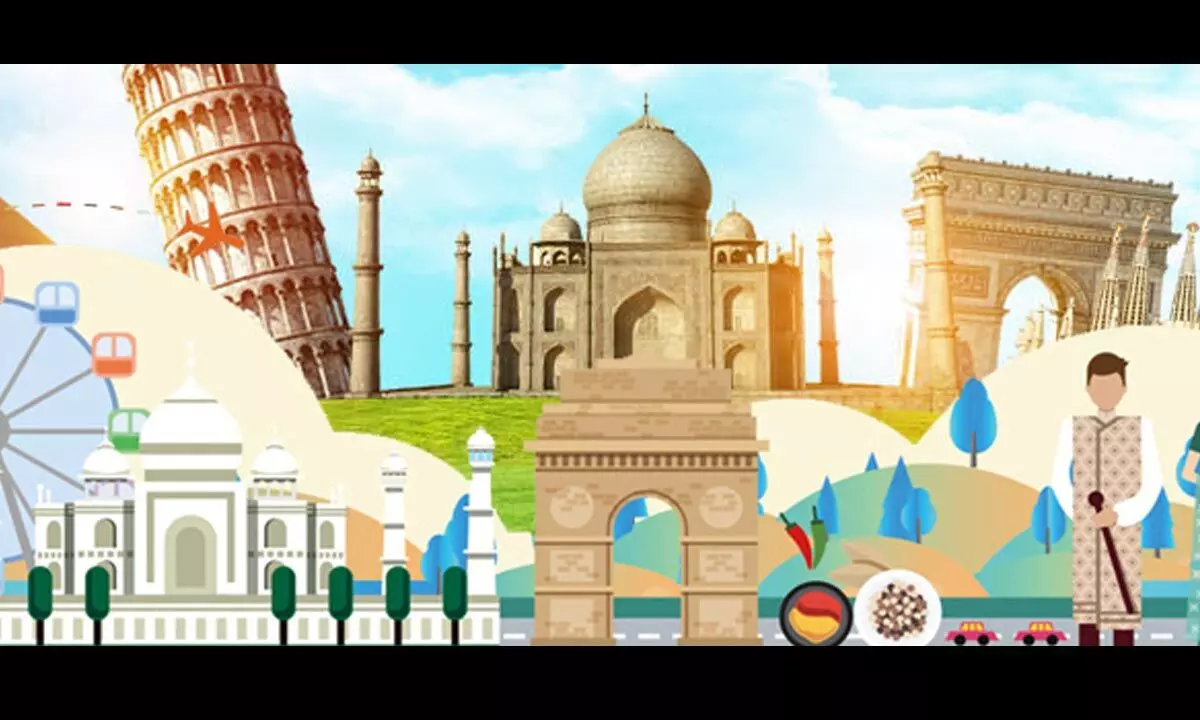Sustainable tourism is the way forward for India
Tourism is one of the largest sectors of the service industry in India
image for illustrative purpose

Tourism has the potential of being a non-polluting, sustainable, income provider. With the global emphasis on sustainability and combating climate change, this creates a major opportunity to position the Indian tourism experience as a unique visitor takeaway, in low-impact settings. In fragile eco-systems, this takes on another crucial dimension
Sustainable tourism can provide solutions to the issues of inclusive growth. Besides, the ‘return to roots’ focus in tourism, is interlinked with increased access to information, enlarged interest in heritage and culture, improved accessibility and climate change concerns.
Luckily sustainable tourism in India has been on the rise over the past few years. Over-tourism is being addressed by the government and private sector entities that are developing steps to promote people, nature and culture.
Let us explore some major facts about India’s strategy for sustainable tourism.
By 2030, it is anticipated that India will contribute $250 billion to the global economy through tourism, creating 137 million jobs and earning $56 billion in foreign exchange. Indian tourism and hospitality are predicted to generate $50.9 billion by 2028, up from $28.9 billion in 2018. By 2028, there will be 30.5 million foreign visitors. From an expected $ 75 billion in FY20, the country’s travel market is predicted to grow to $ 125 billion by FY27. The industry is likely to provide around 53 million jobs by 2029. It is estimated that outbound travel would reach 29 million by 2025, while by 2024, it will surpass $24 billion.
Tourism has the potential of being a non-polluting, sustainable, income provider. With the global emphasis on sustainability and combating climate change, this creates a major opportunity to position the Indian tourism experience as a unique visitor takeaway, in low-impact settings.
In fragile eco-systems, this takes on another crucial dimension. Local communities become the motive for sustainable practices, especially in the preservation of cultural identities and natural heritage. While tempering the impact of the ecological footprint, this can also create the pressure point for an equitable local share in the economic benefits of tourism.
In India, the travel and tourism sector is estimated to create 78 jobs per million rupees of investment, compared to 45 jobs in the manufacturing sector for a similar investment. Along with construction, it is one of the largest sectors of the service industry in India. Apart from providing employment to a wide spectrum of job seekers from the unskilled to the specialized, a higher proportion of tourism benefits (jobs, MSME trade opportunities), accrue for women.
There are other concerns as well. A study on important tourist destinations, conducted by the Union Ministry of Tourism, reveals that lack of hygiene and sanitation are major irritants for both foreign and domestic tourists.
Therefore, creation of awareness, as well as making the requisite facilities available, will be given high importance during 12th Five Year Plan through the following measures: Major social awareness campaign under the ‘Atithi Devo Bhavah’ initiative; Involving schools, NGOs, industry associations, in carrying out sustained cleanliness drives at important tourist destinations; Suitable incentives and awards to organizations and individuals involved in this initiative; Top priority for sanctioning Central Financial Assistance for setting up of way-side amenities and bio-degradable toilets.
This is proposed to be achieved through the following measures: Sustainable Tourism criteria for India (STCI) and indicators for hotels, tour operators have been finalized. Similarly, the criteria and indicators for rural tourism and home-stays are being evolved. Action will be initiated for tourism industry constituents, not yet covered; The scope of market development assistance scheme would be enlarged to cover participation of representatives of recognised national associations in workshops and seminars on sustainable tourism, organised by reputed organisations in India or overseas; training stakeholders under the existing schemes of the ministry.
Sustainable tourism development will include advancing niche tourism products or developing additional niche products like adventure, medical, wellness, golf, polo, cruise, meetings incentives conferences & exhibitions (MICE), pilgrimage and spiritual travel, film tourism, eco, wildlife and caravan tourism
As tourism is a multi-sectoral activity, active convergence in the resources of various sectors involved in promotion of tourism at the Central and State level is necessary for achieving optimum results.
The intention is that countrywide experiential tourism attractions get developed for the socio-economic benefit of local communities, especially in order to strengthen inclusive economic growth. It is equally important to ensure that increased socio-economic well-being does not cause permanent or long-term damage to the country’s physical, cultural and environmental heritage.
The use of existing resources, both tangible and intangible, has to be undertaken judiciously for the well-being of the present generation, but not at the cost of depriving future generations of any part of the inheritance.

